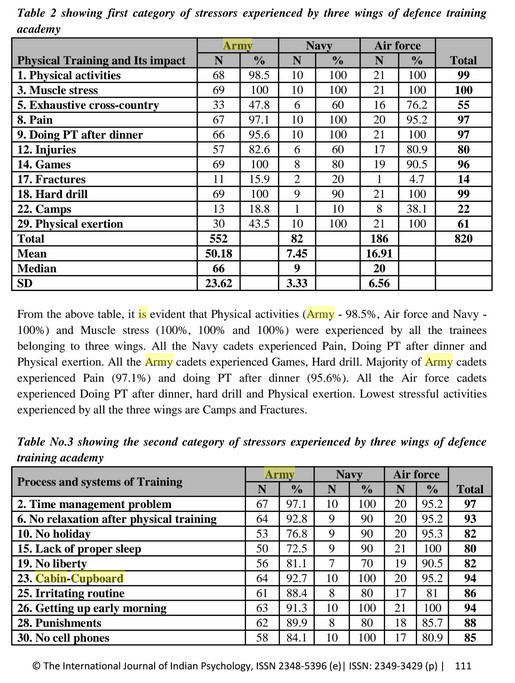This post was prompted by a conversation I had with a cousin on farming and food contamination. This is a question frequently asked by many people. I finally decided to put together a few links and articles that I could send to them as reference, instead of having to talk to each individual separately.
First, I have added some videos that gently introduce the topic. There may be some who are impatient and do not want to watch the video. For them, each video has a short summary. Then I added a few peer-reveiwed research articles which give more detailed analysis, and scientific proof. Finally, I have placed some videos of alternative ways to grow meat, and poultry on a small scale. Then my own personal take.
Introductory videos
Summary: Less than five big conglomerates own the commercial meat industry in the USA. The companies use a significant amount of chemicals, growth hormones and antibiotics. If someone tells me this does not get into the food chain, I find it difficult to believe.
https://www.youtube.com/watch?v=nX1KUPZC3Ck
https://www.youtube.com/watch?v=tIY7jxd7GAY
Summary: These two videos are similar to the first one, but more focussed on scientific studies, and how meat/poultry lobbyists try to influence even independent research.
https://www.youtube.com/watch?v=VMqYYXswono
Summary: The above video is VERY GRAPHIC. I wanted to show how a commercial scale slaughter house works. It is one of the most humane design of a slaughter house that I had seen. Many of my friends considered even this to be quite disturbing. Poultry processing methods are even worse. Also, even if the slaughter house is well-designed, it does not fix the antibiotic and chemical overuse problem.
https://www.youtube.com/watch?v=2Fbf0V5ftbc
Summary: This video starts by showing how industrial pig farming can contaminate the environment. The farms where pigs are grown and the factories that process this meat release very harmful chemicals and make life miserable for neighbouring households. Next section shows how forests in Brazil are being destroyed to setup monoculture farming of soyabean. This degrades the soil, and the pesticides and fertilisers spoil the water and air. The trade of soybean is controlled by five large global companies. Next, it describes Mozambique where the farmers own much lesser land. Free agricultural land is less, and even forests are protected by Govt rules. There is stiff resistance to large companies capturing the farming economy. The video does not talk about India, but even here there are existing farmers and there is a similar strong resistance to corporate farming. Next it talks about Argentina, where again corporate farming is taking over rainforests and converting them to soyabean farms. Where does the soyabean go? To China for processing – into tofu and other products which again get sent all over the world. Next it shows Govt sponsored corporate farming in China. Next it talks about USA, where it talks about how large conglomerates eventually take over anyone who wants to do small farming or growing animals outdoors.
https://www.youtube.com/watch?v=aue2VLD2icA
https://www.youtube.com/watch?v=RYYf8cLUV5E
Summary: similar videos on shrimp and salmon farming.
https://www.youtube.com/watch?v=EGAl2iYNo50
Summary: Remote so called uncivilised communities, are more healthy as compared to modern societies.
More detailed analysis
I will use ammonia contamination in food as a simple example. The meat processing industry and the supply chain is such that it takes a week or so for the meat to reach the store from the date the animal is killed in the meat processing warehouse. Since meat can decay fast, it leads to growth of bacteria like EColi. Also, even with the use of a lot of antibiotics, the industrial scale at which animals are grown leads to a large concentration of a variety of other bacteria. Exposing meat to ammonia is one way of ensuring that all bacteria within the meat is killed in the warehouses.
https://www.youtube.com/watch?v=7Fj81Ljx58s
Summary: This video says that ammonia is a naturally occurring compound. It also claims that the percentage of ammonia increased in the meat processing industry is small. But if one reads the actual research papers, a very different story emerges.
Example research papers:
https://www.researchgate.net/publication/325098732_Effect_of_ammonium_hydroxide_on_quality_of_meat_products/link/5e442588299bf1cdb924c03f/download
Effect of ammonium hydroxide on quality of meat products, January 2018 Contemporary Engineering Sciences 11(31):1513-1532
The results indicates that despite having a lower yield on cooking losses (23%), beef filets have a palatable taste and palatability [39] phosphates are a substantial source of sodium. It has been reported that excessive sodium intake is associated with increased blood pressure (hypertension), one of the main risk factors for cardiovascular diseases and other health problems such as stomach cancer and kidney diseases [43].
https://digitalcommons.unl.edu/cgi/viewcontent.cgi?article=1012&context=foodscidiss
EVALUATION AND ANALYSIS OF BEEF CONTAMINATION BY LOW LEVELS OF AMMONIA, Sely Prajitna, University of Nebraska-Lincoln
In past incidents, the levels of ammonia in contaminated food which caused illness, ranged from approximately 500ppm to 1500ppm. Contamination levels as low as 500ppm in food products have led to stomachache, headache, nausea, sore mouth and throat, and vomiting among people who consumed the contaminated food products. Cooked chicken tenders contaminated with ammonia ranging from 880ppm to 1,076ppm caused 157 students and teachers to become ill after consuming them (Dworkin et al, 2004)
…..
No regulation has been set up to establish the ammonia level in contaminated food products that will result in rejection as not fit for human consumption. Hijaz et al. (2007) showed that the background level of ammonia present in beef (ground chuck, eye round, and top loin) without ammonia contamination ranges from 95.6 ppm to 139.3ppm. The ammonia background in uncontaminated meat is due to biodegradation (Parris et al., 1983; Pivarnik et al., 1998) and enzymatic (Pivarnik et al, 1998) processes as the meat ages and spoils over a period of time during storage. (Laymans terms: Yes, Ammonia occurs naturally in meat. But, it is because of the decaying of dead meat. Increasing the amount of ammonia saying that it occurs naturally is scientifically erroneous, bordering on wrong.)
….
A combination of all the tests would help determine which food products are safe and fit for human consumption, but would be time consuming and expensive, especially for sensory evaluation. (Laymans terms: If a research scientist says proper testing for ammonia is time consuming, good luck getting industry to use it.)
…
the average ammonia level in frozen meat samples was only 96.0±5.4ppm, which was approximately 6 times lower than the ammonia level in fresh meat (586.7±14.2ppm). (Laymans terms: Fresh meat just approaches ammonia levels where it is dangerous. Frozen meat has less ammonia.)
Alternative ways of growing poultry/pigs/cows in small farms and backyards:
https://www.youtube.com/watch?v=nKc26WceZ4Y
https://www.youtube.com/watch?v=CloGPgGE9WQ
https://www.youtube.com/watch?v=AIjO82nozZM
https://www.youtube.com/watch?v=_OxU8O9Ka-s
My final take
Half acre of land can generate ENOUGH food for a family of eight people to live comfortably. All they have to do is get out early in the morning and do a little bit of farming. One can grow everything without any pesticides, insecticides, or fertilizers. We may have to give up jogging, but what access to fresh air and food we shall have!!! Two pairs of chicken will give two eggs a day. 14 FRESH EGGS each week at LITERALLY ZERO cost. I wonder who is really losing out here? We are so attracted to un-natural lifestyles that we forget to look at their ill-effects on our lives. We have diseases that are completely a result of the food that we eat, the sedentary lifestyle, and pollution from every modern product that has been developed. Unfortunately, these kinds of statements make friends/family think that I suggest that one should become a hippie.
Personally, I cannot give up on every modern convenience and live like the hippies or Amish. I will not give up my job, because I love teaching and I love computers and coding. I may not splurge on new gadgets/home improvements, but I will have a house with modern comforts. I may prefer taking public transport, but I will own a car. I may use less processed food and try to eat fresh food, but if someone wants me to go to a restaurant, I will. You get the drift. But even with all this, maintaining a kitchen garden and a couple of chicken is not impossible.

